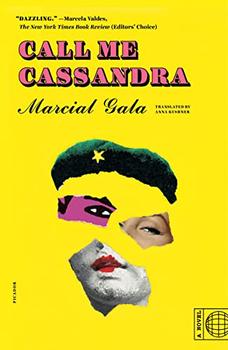Summary | Excerpt | Reviews | Beyond the book | Read-Alikes | Genres & Themes | Author Bio

Daniel Loedel's debut novel, Hades, Argentina, opens in 1986 when we meet Tomás Orillo, a young textbook translator living in New York. Now known as Thomas Shore after escaping Argentina a decade earlier under a forged passport, his marriage is failing largely due to his inability to address his actions — and inaction — during Argentina's Dirty War, a period from 1976 to 1983 when the country's military dictatorship engaged in acts of state terrorism against suspected socialists (see Beyond the Book). Tomás learns an elderly mother figure from his childhood is on her deathbed in Buenos Aires, providing the perfect excuse for him to take a break from his relationship, and so he returns to his native country. He arrives too late — the woman has slipped into a permanent coma — but her family says she left him a message: In order to be granted a "do-over," Tomás must find someone called "the Colonel." The family is mystified but Tomás understands; the Colonel, a member of the military junta that overthrew Argentina's government and has since died, had once been his protector. Tomás finds the Colonel's ghost in a cemetery, waiting to take him on a journey into the past to revisit the choices he made. And so they travel together to a surreal version of the past the Colonel calls Hades, Argentina.
The technique Loedel uses to relay the protagonist's story is unusual; as Tomás proceeds to relive his last months in Argentina, the author blurs the line between past and present, superimposing the two timelines. Tomás narrates his return to 1976 as if experiencing it in the present, but always with an awareness that it's really a decade later; he's been here before and knows what's coming next. Ghosts from his past drift in and out, often simply behaving as they did then, but sometimes making it clear they know they're mere shadows reenacting past events for his edification. In one scene, for example, he relives a dinner he had with his mother. The scene is straightforward until he departs, at which point she thanks him for coming because "you didn't last time" — meaning that he didn't actually keep their dinner date in 1976, but her ghost appreciates that he's making the choice to correct this oversight the second time around. I did find this confusing at first; not being sure if events were occurring in Tomás's past or present was a little disorienting. But once I realized that both timelines were occurring simultaneously, the format was intriguing.
All that makes it sound like the novel falls within the magical realism genre, and I suppose if you want to be precise it does; it is, after all, largely a ghost story. Loedel invokes the supernatural elements in his plot so sparingly, though, that most of the time the reader will forget that the story isn't a direct retelling of the main character's experiences, and when a character steps out of the 1976 timeline to address Tomás in 1986 the effect is startling.
Anyone familiar with Argentina's history will know that this time period was incredibly brutal. During the Dirty War, thousands of citizens were "disappeared" — kidnapped off the streets, most never to be seen again. Much of the book takes place at Automotores Orletti, one of Argentina's primary detention centers where those marked as socialists were interrogated, tortured and very often killed. Although Loedel's depiction of these gruesome scenes certainly doesn't gloss over actual events, the account isn't as graphic as it might be. This lack of specificity helps the author retain focus on his primary question — would you change the past if you could? — by not allowing the reader to dwell too much on the horrors prisoners endured. Nevertheless, inhumane acts abound throughout the narrative, which may present a challenge for more sensitive readers.
Hades, Argentina isn't a fast read, but that's partly because Loedel's prose is often so achingly beautiful that one must pause to simply appreciate his gorgeous writing. It's one of those rare books that gets under your skin and haunts you for a long time after you turn the last page. It's one of the best novels I've read in recent years, and one I recommend highly for those who feel they can comfortably engage with the subject matter.
![]() This review was originally published in The BookBrowse Review in February 2021, and has been updated for the
January 2022 edition.
Click here to go to this issue.
This review was originally published in The BookBrowse Review in February 2021, and has been updated for the
January 2022 edition.
Click here to go to this issue.

If you liked Hades, Argentina, try these:

by Marcial Gala
Published 2023
From Marcial Gala, the author of the award-winning The Black Cathedral, Call Me Cassandra is a darkly magical tale of a haunted young dreamer, born in the wrong body and time, who believes himself to be a doomed prophetess from ancient Greek mythology.

by Patricia Engel
Published 2021
For readers of Valeria Luiselli and Edwidge Danticat, an urgent and lyrical novel about a Colombian family fractured by deportation, offering an intimate perspective on an experience that so many have endured - and are enduring right now.
Your guide toexceptional books
BookBrowse seeks out and recommends the best in contemporary fiction and nonfiction—books that not only engage and entertain but also deepen our understanding of ourselves and the world around us.